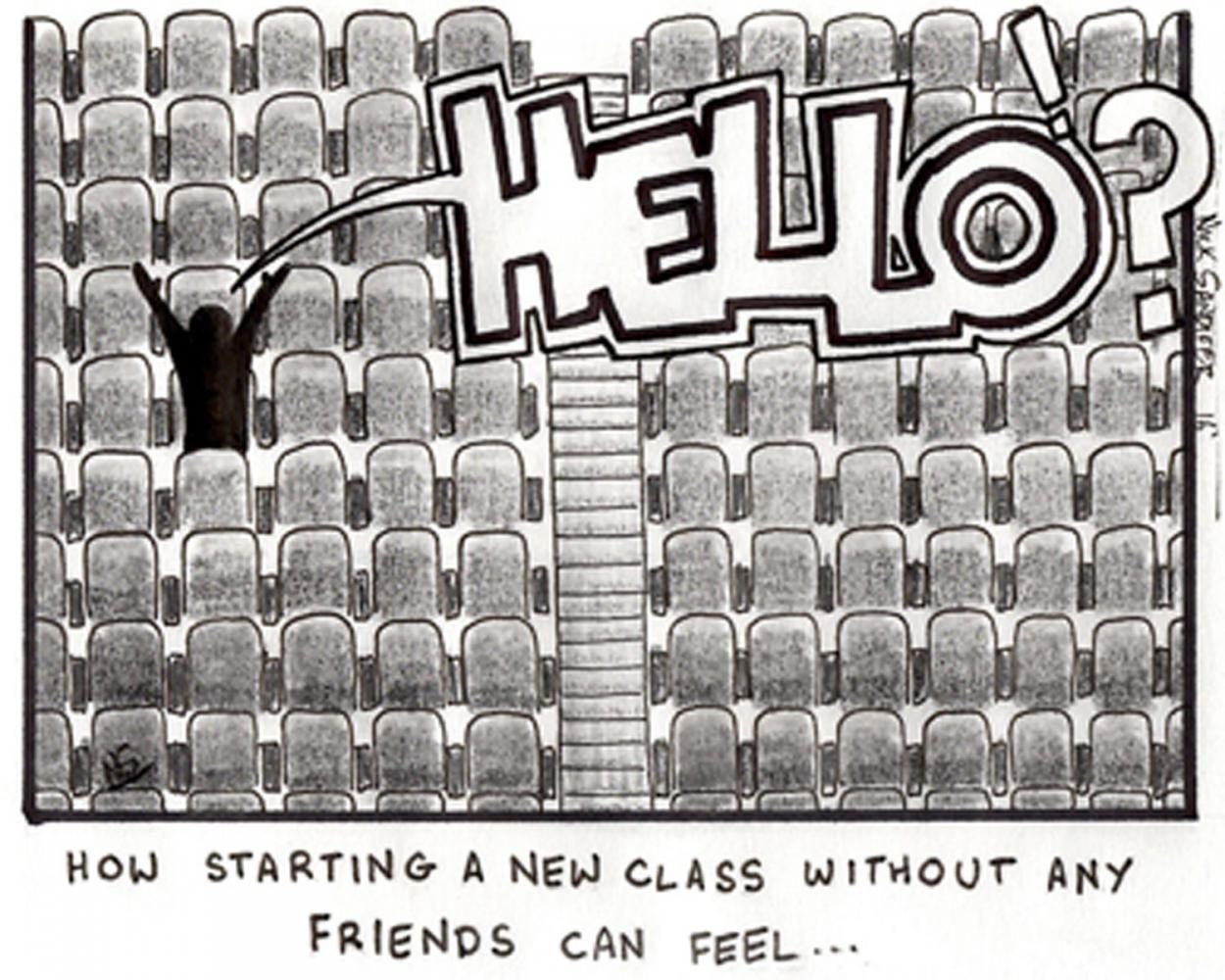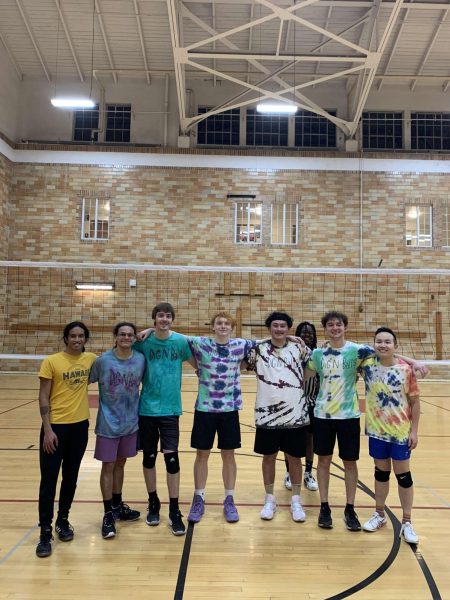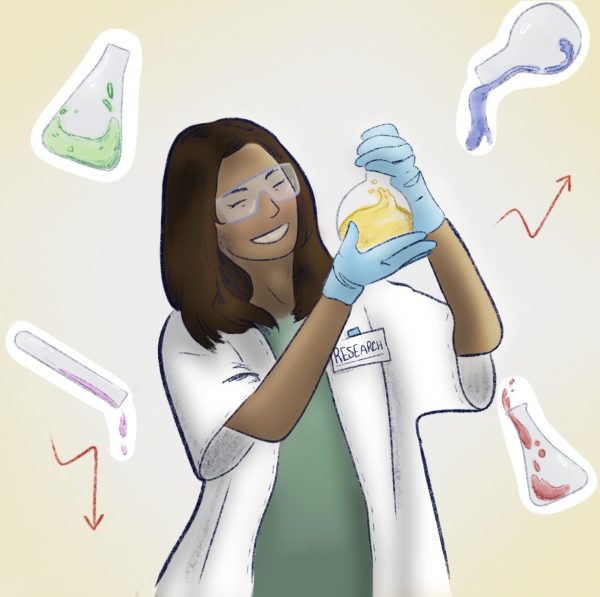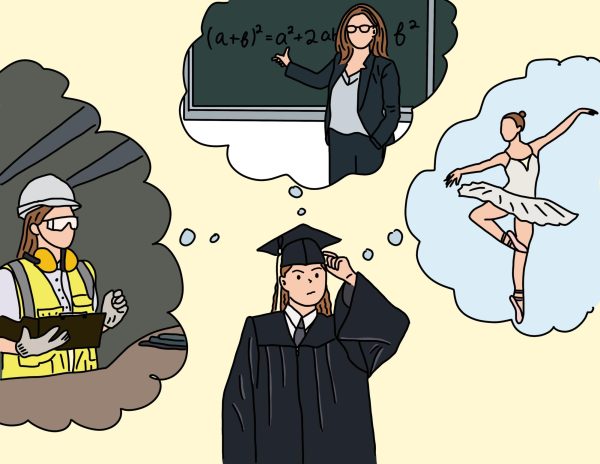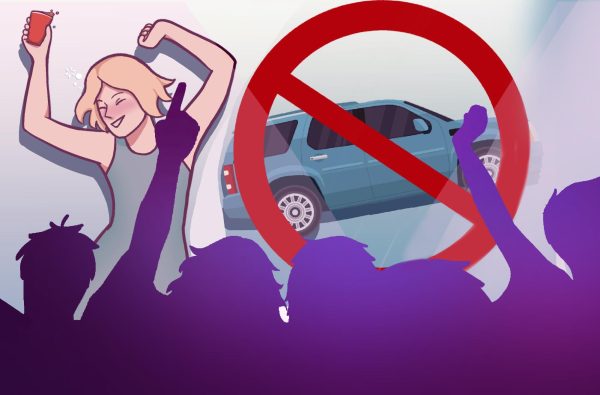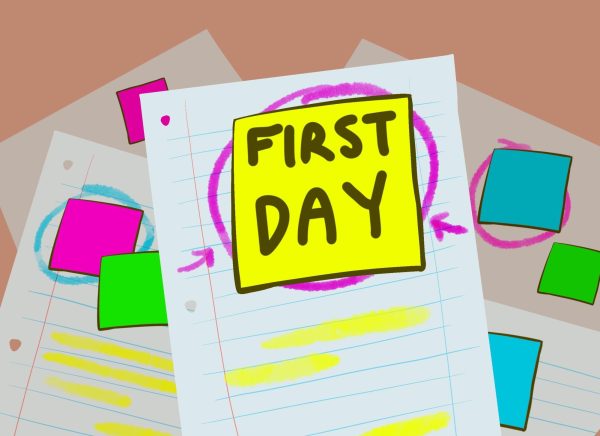Acquaintances and Anxiety
January 25, 2016
On the first day of class, after weeks of minimal brain use, most sympathetic professors review the syllabus. Some less-understanding professors jump right into content. And then there are some professors that hang on to the tried-and-tired high school tradition of forcing students to introduce themselves, to give their name, major, and a random fun fact about themselves.
These first few days of syllabi and shared fun facts form a first impression that can shape your relationship with your fellow students for better or for worse. But how do you get from, “Hi, I’m Jen and I have six fat, sassy pet goats,” to “Hey, let’s hang out?”
For most, these ice-breakers are a nuisance. For some, it’s downright traumatizing. Social anxiety can make classroom introductions and friendships extremely difficult.
Different people experience different levels of social anxiety. Some have the confidence and personality to get beyond their anxiety roadblocks and introduce themselves to anyone. Others are shy or quiet, and thinking of how to start a conversation with new people can be traumatizing. Some feel mild discomfort around new people and others might feel something that can be clinically diagnosed.
According to the research article “Imagery rescripting of early memories in social anxiety disorder: An experimental study” in the journal “Behaviour Research and Therapy,” social anxiety has been shown to be very strongly related to a traumatizing event early on in life. The article explains how, through therapy and the reimaging of these memories, the anxiety inflicted by that memory can be reduced.
However, not everyone needs to handle their social anxiety in such an in-depth way. In my personal experience, all through elementary school, middle school and even high school, I worried my peers would judge me for the things I said when I introduced myself, or that my interests were weird. So, how do you push past that fear and essentially own up to who you are?
Everyone will have to find what works for them as far as overcoming feelings of self-consciousness. But here are a few things that work for me.
The first thing you need to do is try to gauge their interest in a friendship. If they smile at you when you walk in, say hi. If they ask how your weekend was, there’s a strong chance they like talking to you. This may all seem very obvious, but the reality is people who suffer from any level of social anxiety might not be able to read that a person likes them. They might think a smile is just courteous and nothing more.
Think about your own perspective. Do you walk around thinking about how you don’t want to be friends with anyone around you? No. Neither do most other people.
Depending on the professor, you may have to work with the students around you on assignment or classwork. This is usually where the initial friendships begin, as simple acquaintances. As you sit in the same seat every day, you eventually learn your desk buddy’s name, and you might talk about classes you have or activities you’re involved with.
Although summoning the courage to invite someone to study or get coffee can be incredibly hard, making new friends isn’t that complicated. It’s almost like asking out the guy or girl you like. You smile, they smile. You say hi, they say hi.
There’s no secret trick to get someone to like you. It’s more about making it known you’re open to being friends with others. The next time you’re in class with someone you’d like to study with or watch a movie or go to a basketball game with, just smile and say hi. It’s as simple as that.


